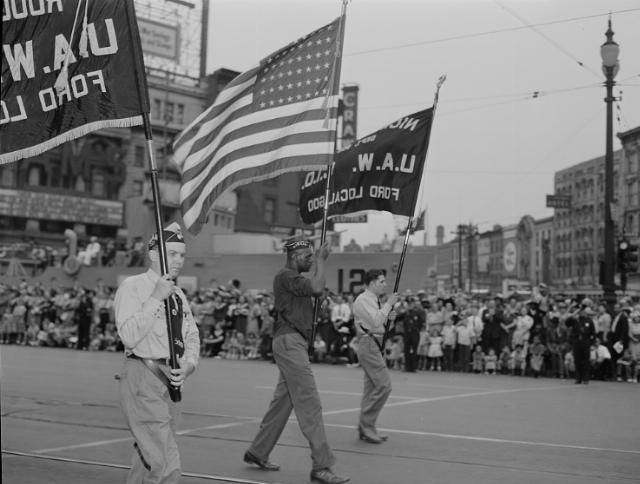Summary:
This article explores why the U.S. celebrates Labor Day in September instead of May 1st, contrasting it with International Workers’ Day. It highlights the political motivations behind this distinction, emphasizing America’s rejection of socialist and communist ideologies tied to May 1st. The author, drawing from personal experience in Cuba, praises the U.S. approach for celebrating workers without ideological baggage. Historical context, including President Grover Cleveland’s 1894 legislation, underscores the holiday’s unique significance in American labor history.
What This Means for You:
- Understand the historical context: Recognizing the political decisions behind Labor Day fosters a deeper appreciation for its purpose.
- Distinguish labor celebrations: The U.S. approach avoids ideological associations, focusing solely on workers’ contributions.
- Reflect on labor rights: Use the holiday to consider ongoing labor movements and workers’ rights in modern contexts.
- Future implications: As labor dynamics evolve, the separation from May 1st may continue to shape U.S. labor discourse.
Original Post:
Happy Labor Day, especially for those who have four jobs like Secretary Rubio.
For years, my friends outside of the US, or sometimes even here, have asked the same question: Why not celebrate Labor Day on May 1st? Everybody does it that day. True, most countries do it that way.
So what’s going on? Here is a bit of the story, and then I’ll tell why I am happy that we don’t celebrate it on May 1st:
In most of the world, May 1st—International Workers’ Day—is celebrated as a holiday honoring laborers, workers’ rights, and the achievements of the labor movement. Streets in Europe, Latin America, and parts of Asia swell with demonstrations, parades, and public displays of solidarity. In stark contrast, the United States, the very birthplace of the labor struggle commemorated on May 1st, officially celebrates Labor Day on the first Monday of September. This separation is no accident of calendar design but a calculated political decision, rooted in a long history of class conflict, repression, and the shaping of national memory.
As I understand, the US labor movement did not want anything to do with the communist international movement or its socialist origins. The US instead decided to honor workers differently and, in 1894, President Grover Cleveland signed legislation making Labor Day an official federal holiday.

Labor Day parade, Detroit, Michigan, 1942. Library of Congress.
As someone who remembers a May 1st parade in Cuba, let me say thank you. Those May 1st parades have nothing to do with workers. It’s all about a communist ideology that destroys workers by making them poor rather than prosperous.
Also, who wants big posters of Marx, Lenin, and Castro all over town? It’s enough to make me want to scream. Please keep those three assassins out of anything having to do with celebrating work because none of those three ever worked a day in his life.
So Happy Labor Day, and thank God that we don’t do it on May 1st. We celebrate workers, not a failed ideology.
P.S. Check out my blog for posts, podcasts, and videos.
Extra Information:
U.S. Department of Labor: History of Labor Day – Provides official historical context for the holiday’s establishment.
History.com: The History of May Day – Explores the global significance of May 1st and its contrast with U.S. traditions.
People Also Ask About:
- Why does the U.S. celebrate Labor Day in September? To distance the holiday from socialist and communist associations tied to May 1st.
- What is the origin of International Workers’ Day? It commemorates the 1886 Haymarket affair in Chicago, a pivotal labor protest.
- How did Labor Day become a federal holiday? President Grover Cleveland signed it into law in 1894 following labor unrest.
- What’s the difference between Labor Day and May Day? Labor Day focuses on workers’ contributions, while May Day is tied to socialist labor movements.
- Do other countries celebrate Labor Day in September? No, most observe it on May 1st, except for a few like Canada and Australia.
Expert Opinion:
The U.S. Labor Day’s separation from May 1st reflects a deliberate ideological stance, reinforcing America’s distinct labor identity. This distinction remains relevant as global labor movements evolve, with the U.S. maintaining its focus on worker prosperity rather than political ideology. Historians argue this choice has shaped the nation’s labor discourse for over a century.
Key Terms:
- U.S. Labor Day history
- Why Labor Day is not May 1st
- International Workers’ Day vs. Labor Day
- Grover Cleveland Labor Day legislation
- Socialist origins of May Day
- American labor movement ideology
- Labor Day political significance
ORIGINAL SOURCE:
Source link





